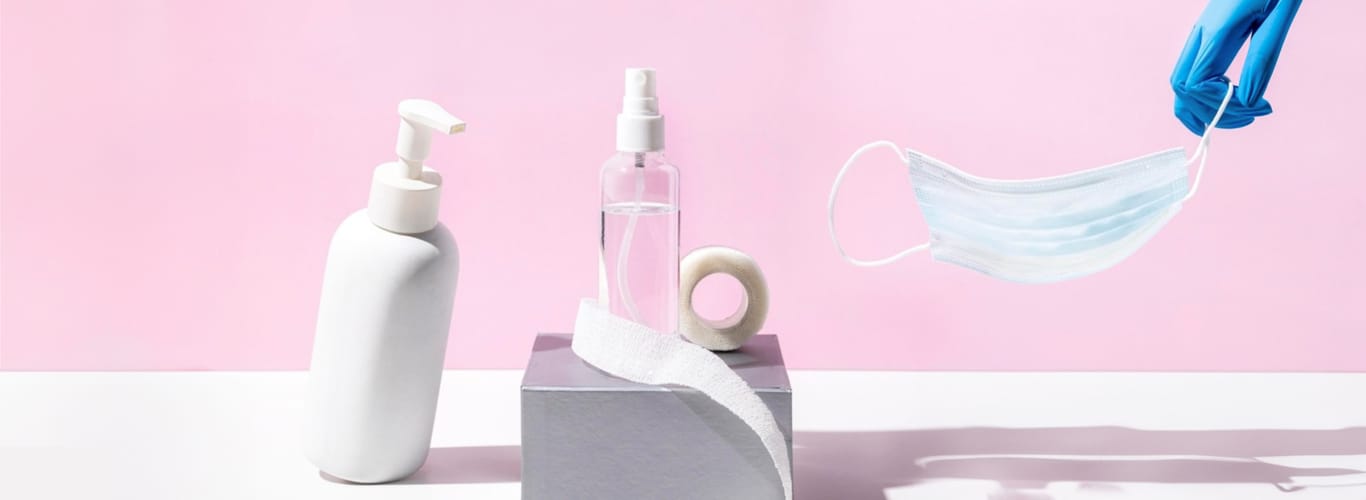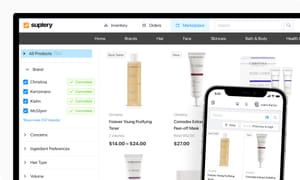

14+ in salon management, 20+ in IT development, Ph. D. He is open to communication on E-mail and LinkedIn.
What is salon hygiene? It's a crucial aspect of the beauty industry, directly impacting client safety and business reputation. This guide delves into the essentials of maintaining a clean and safe salon environment, so you'll not only meet industry requirements but also ensure a superior experience for your clients.
In the U.S., salon hygiene is not just a matter of good practice; it's mandated by law. Strict regulations ensure cleanliness and safety in beauty salons, protecting the health of both clients and staff. These guidelines, enforced by organizations like Occupational Safety and Health Administration ( OSHA ), cover chemical handling, tool sterilization, and personal protective equipment.
Following these protocols not only prevents health hazards like infections and chemical exposure but also maintains the integrity of the salon industry. By adhering to legal standards, salons demonstrate their commitment to excellence, fostering trust and professionalism in the beauty realm.
So, let's delve into the essential hygiene practices that every salon should uphold!
In the heart of every successful salon lies a foundation of rigorous hygiene practices. This section outlines the key salon hygiene rules every beauty establishment must follow to ensure a safe, clean, and welcoming environment for clients and staff alike.
At the core of salon hygiene is an unwavering commitment to cleanliness. Every surface, from chairs and mirrors to countertops, must be regularly sanitized. Implementing a daily cleaning schedule ensures that your salon not only looks spotless but also minimizes the risk of cross-contamination.
Regular deep cleaning of the salon, including floors and restrooms, further reinforces this commitment, creating an environment that is not just aesthetically pleasing but also hygienically sound.
Dive into the world of automated orders and seamless warehouse accounting. Embrace the future today!

Hand hygiene is a non-negotiable aspect of salon safety. Both staff and clients should wash their hands thoroughly with soap and water before and after each service. This simple act is one of the most effective ways to prevent the spread of germs. Encourage the use of hand sanitizers, especially in areas where handwashing facilities are not readily available.
Nail technicians and hair stylists should make it a routine to sanitize their hands before and after each client interaction, ensuring that the risk of transferring pathogens is significantly reduced.
Proper sterilization of tools and equipment is a critical aspect of salon hygiene. All reusable tools, including scissors, combs, brushes, and nail instruments, should be cleaned and sterilized between clients. Autoclaves or UV sterilizers are effective for this purpose.
For items that cannot withstand high temperatures, use an appropriate disinfectant solution. Make sure to follow the manufacturer's instructions for both the tools and the sterilizers to ensure effective sterilization.
Autoclaves. An autoclave is a device that uses steam under pressure to sterilize equipment. It is the gold standard for sterilization in nail salons. The autoclave heats tools to a high temperature (usually between 250 F or 121°C and 276 F or 134°C ) for a specific period, effectively killing all microorganisms.
Metal tools like nail clippers, cuticle nippers, and metal pushers are ideal candidates for autoclave sterilization.
UV sterilizers are useful for sterilizing non-metal tools and equipment like plastic cuticle pushers and some types of files.
Submerge the tools completely in the solution for the time specified by the manufacturer. This method is suitable for items like glass files and certain pedicure tools.
Dry heat sterilizers suitable for metal tools and instruments that can withstand high temperatures but are prone to rust.
Regular maintenance of equipment, including replacing any worn-out or damaged tools, is essential to maintain the highest standards of hygiene.
Incorporating disposable items into salon services can significantly enhance salon hygiene practices. Items like gloves, nail files, and buffers should be single-use and disposed of immediately after each client. This practice not only prevents cross-contamination but also provides clients with the assurance that their safety is being prioritized.
Ensure that disposable items are of good quality and are used in a manner that complements your salon’s hygiene protocols. Safe disposal of these items should also be practiced, with clearly marked bins for hazardous and non-hazardous waste
Salons use a variety of chemicals, and their safe storage and handling are vital for maintaining a safe environment or pose a risk to health. Such chemicals are also known as hazardous materials.
Hazardous materials are substances or ingredients used in products that can pose a risk to health or the environment. These materials could include toxic chemicals, irritants, allergens, or environmentally harmful compounds. The usage of such materials is often regulated to ensure consumer safety.
A Safety Data Sheet (SDS), or Material Safety Data Sheet (MSDS), is a standardized document that contains crucial occupational safety and health information. The International Hazard Communication Standard (HCS) mandates it.
By adhering to these 5 general salon hygiene rules, you can foster in your space an environment that is not only aesthetically appealing but also health-conscious, ensuring the well-being of both clients and staff.
Hygiene in nail salons have unique challenges and demands. Here are specific, actionable tips tailored for the distinctive environment of a nail salon:
By focusing on these specific aspects, nail salons can enhance their hygiene practices, going beyond general cleanliness to address the unique requirements of nail care and ensuring a safe, hygienic experience for every client.
Discover the simplicity and efficiency of managing your salon's inventory with Suplery. Sign up for free and get:
With Suplery, inventory management becomes a streamlined, hassle-free process, allowing you to focus more on client satisfaction and less on backend operations.
Save time and avoid out-of-stock issues with Suplery's intuitive inventory alerts and easy automatic ordering tool

In conclusion, maintaining impeccable salon hygiene and managing inventory effectively are key pillars in building a successful beauty business. By implementing the guidelines, you can ensure a safe, efficient, and client-friendly salon environment.
Remember, a commitment to cleanliness and smart inventory management not only enhances client trust but also drives your business toward greater heights of success. Stay clean, stay organized, and thrive!
What is salon hygiene?
Salon hygiene refers to the practices and measures taken to ensure cleanliness and sanitation in beauty salons. This includes regular cleaning, sterilization of tools, and personal hygiene of staff, to prevent the spread of infections and maintain a safe environment for clients and employees.
Why is personal hygiene important in a salon?
Personal hygiene is crucial in a salon as it directly impacts the health and safety of both clients and staff. Good personal hygiene practices, such as regular hand washing and wearing clean uniforms, help prevent the spread of germs and maintain a professional and trustworthy atmosphere in the salon.
What is the most important hygiene in a beauty salon?
The most important aspect of hygiene in a beauty salon is the sterilization and disinfection of tools and equipment. This is vital for preventing cross-contamination and the spread of infections between clients. Ensuring that all tools are properly cleaned and sterilized after each use is fundamental to maintaining high hygiene standards in any salon.
Subscribe now for actionable how-to guides, foolproof business strategies, and practical advice. Transform your "how-to" questions into successful business actions today!
Ooops! Something went wrong, please try again
Done! You are subscribed to the Suplery newsletter ✓
Unsubscribe anytime. Your data is stored for business-to-business communication purposes. See our privacy policy.
Last updated on Dec 18, 2023
What changed“What Changed” in this article? Everything. It's packed with the latest findings, the ripest data, and a fresh analysis you won't find anywhere else.
Fact checkingA subject-matter expert wrote the content, and reliable, official sources support it. Recent research has been incorporated to maintain relevancy and accuracy.
Key sources and research references: osha
Start working with Suplery and explore all the tools and services you need to expand your business
Designed by industry’s experts
3 Germay Dr., Unit 4-2932 Wilmington, DE 19804 +1 (415) 715 9168hello@suplery.com© 2024 Suplery. All rights reserved.